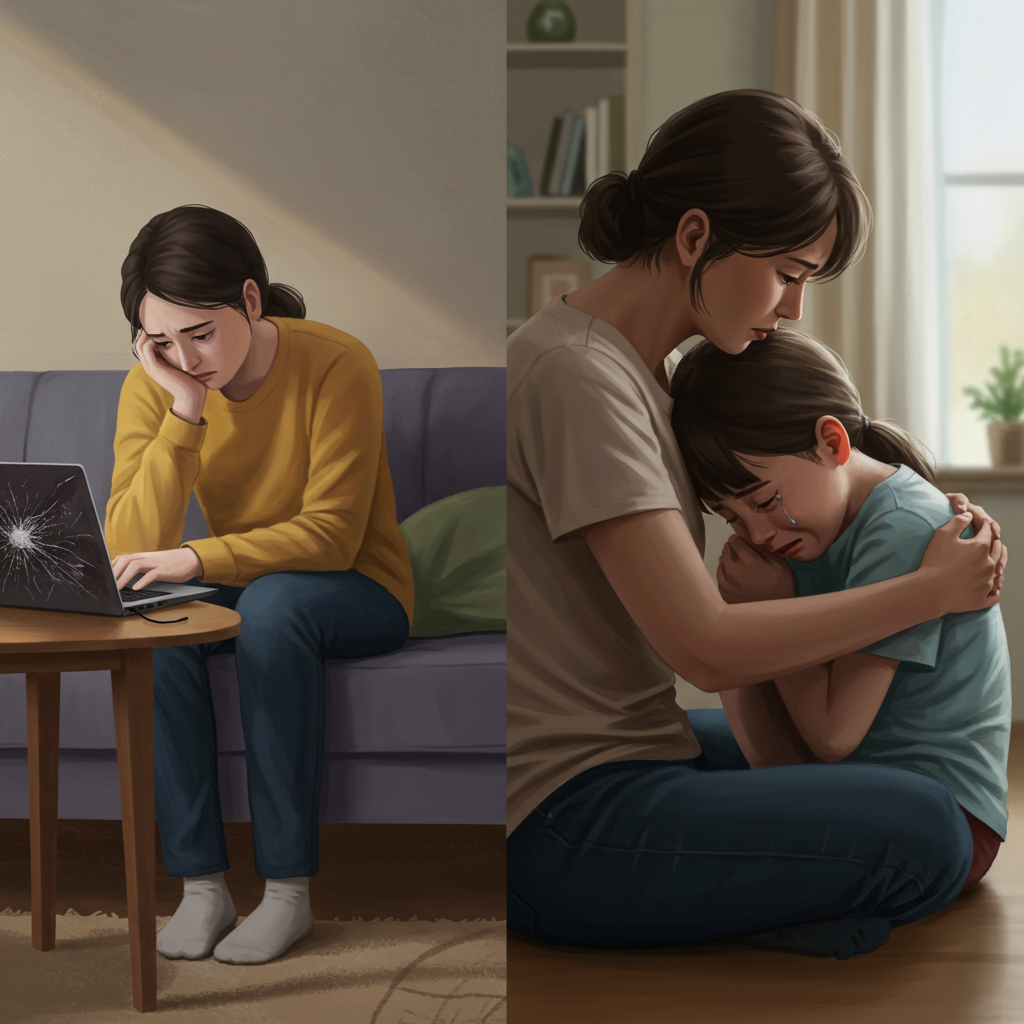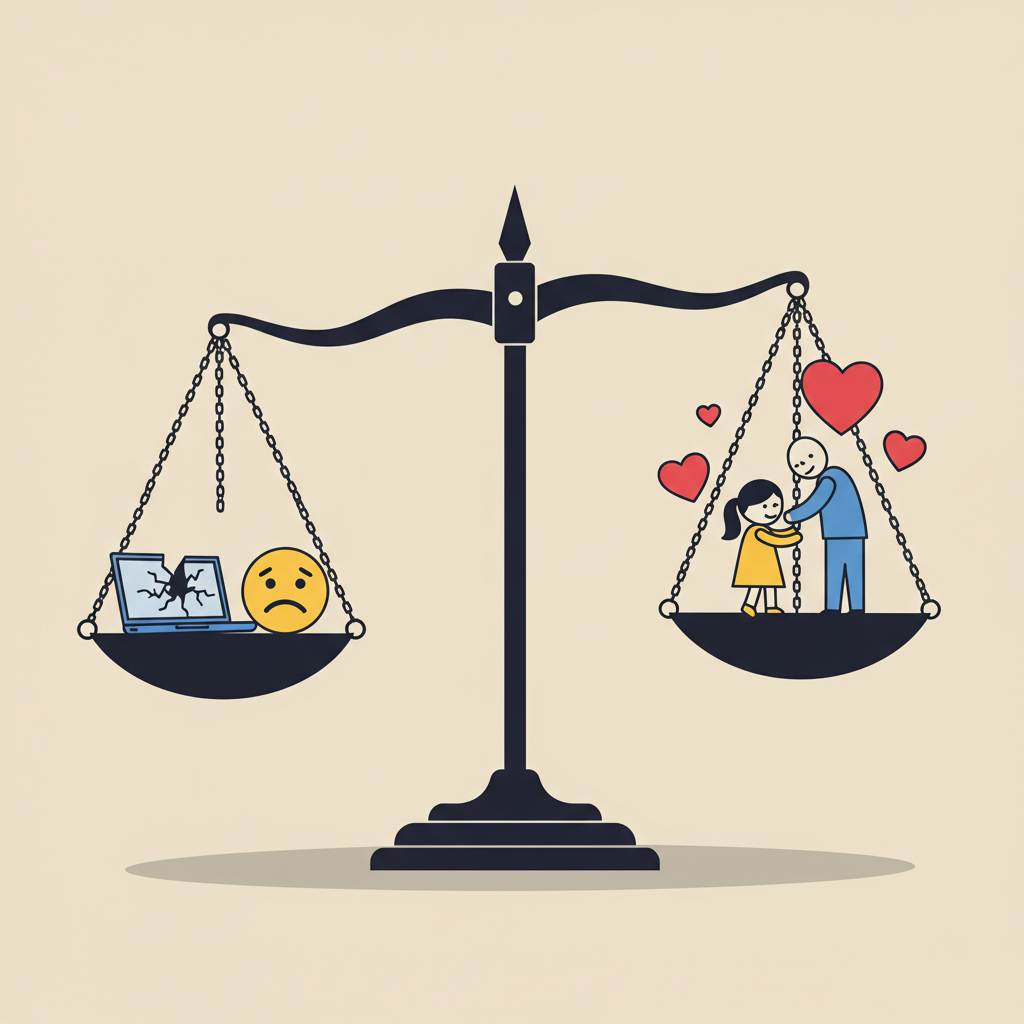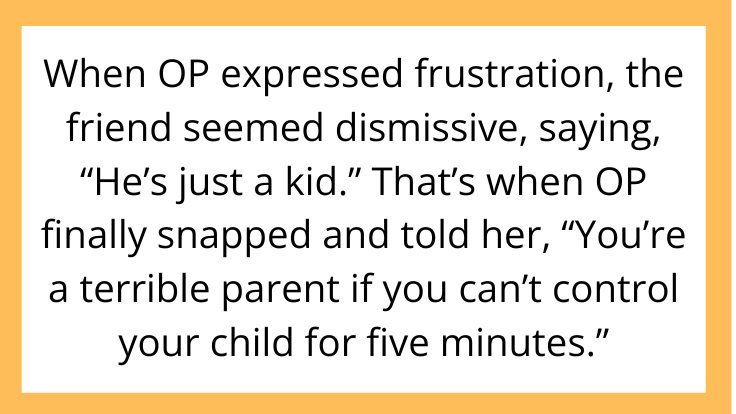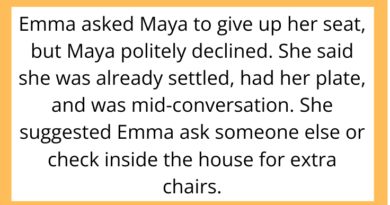AITAH for Telling My Friend She’s a Bad Parent After Her Kid Smashed My Laptop?
When I read this post on r/AITAH, I couldn’t help but feel torn. The original poster shared a story that almost anyone who’s hosted guests can relate to: your friend brings their child over, the child causes damage, and suddenly you’re the one under fire for how you react.
This scenario quickly spiraled into accusations, defensiveness, and the big question—are you truly the bad guy for saying what everyone else was thinking? Let’s unpack this layered situation, why it struck such a nerve online, and what it reveals about boundaries and accountability.
The Incident That Sparked the Debate

OP explained that their longtime friend came over with her six-year-old son for a weekend visit. While the adults were catching up in the kitchen, the boy was left alone in the living room, where OP’s work laptop sat on the coffee table. Within minutes, the child had knocked the laptop to the floor, cracking the screen and damaging the hard drive.
When OP expressed frustration, the friend seemed dismissive, saying, “He’s just a kid.” That’s when OP finally snapped and told her, “You’re a terrible parent if you can’t control your child for five minutes.”
The friend gathered her son and left in tears. Word quickly spread among their mutual friends, and now OP is being painted as cruel and insensitive.
Are Honest Words Always Hurtful?

When Frustration Meets a Lack of Accountability
Many commenters on the thread sided with OP. They argued that while accidents happen, dismissing a child’s destructive behavior instead of acknowledging the harm crosses a line. From this perspective, the real issue wasn’t just the broken laptop—it was the friend’s unwillingness to take responsibility or offer an apology.
Others felt that OP’s choice of words was unnecessarily harsh. Calling someone a bad parent can feel deeply personal, even if your anger is justified.
This situation raises the question: when someone’s child damages your property, how should you address it without escalating the conflict?
Setting Clear Boundaries With Guests

Establishing Expectations Early
One lesson that emerged from the debate was the importance of boundaries. If you invite children into your home, it helps to set expectations before their arrival.
Some people in the comments shared strategies they use, such as:
-
Storing breakables or valuables out of reach
-
Gently reminding parents to keep an eye on their kids
-
Creating a kid-friendly space to minimize accidents
While none of these steps guarantee nothing will go wrong, they can reduce misunderstandings later.
The Emotional Fallout

When Relationships Are Tested
What makes these situations so complicated isn’t just the damage—it’s how both parties respond emotionally. OP felt disrespected and dismissed, while the friend felt attacked and humiliated.
Commenters noted that relationships often fracture not because of the incident itself but because of how people communicate about it. An apology and an offer to help replace the laptop might have defused the entire conflict.
So, Was OP the Bad Guy?

There’s no one-size-fits-all answer. Many readers believed OP was justified in their anger but could have chosen a less inflammatory way to express it. Others thought the friend’s defensiveness was the real problem.
Ultimately, this story highlights how fragile friendships can be when accountability and empathy break down.
Final Thoughts

Conflict is inevitable when values clash—especially around parenting, property, and respect. If there’s one takeaway from this AITAH scenario, it’s that being honest doesn’t have to mean being hurtful. The way we communicate disappointment can determine whether a relationship survives or shatters.



